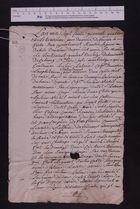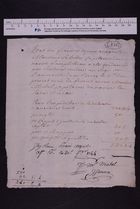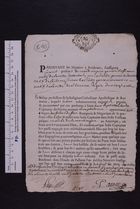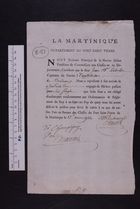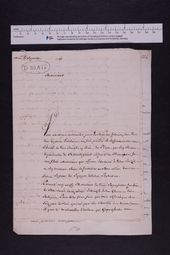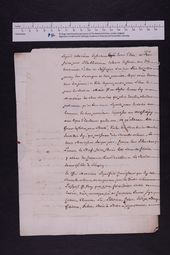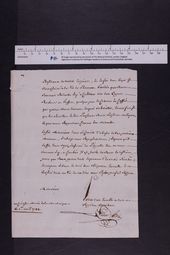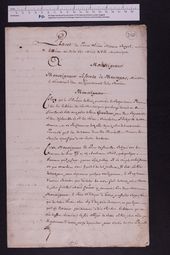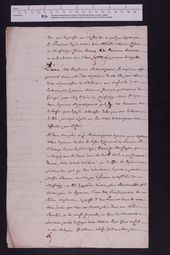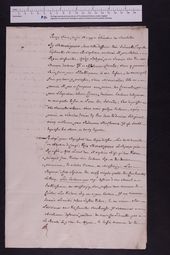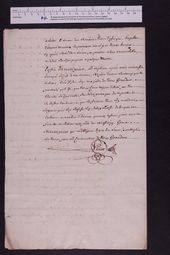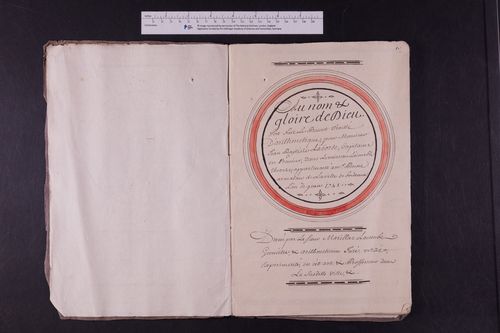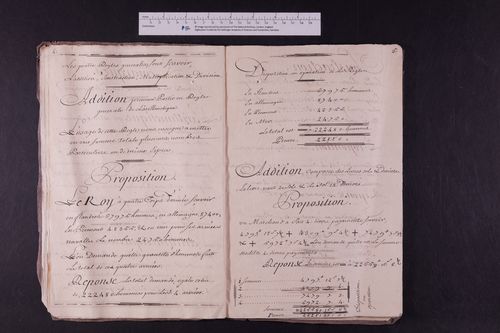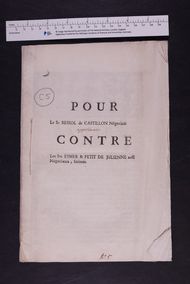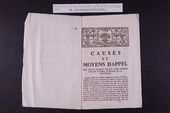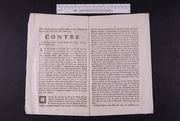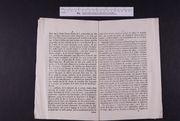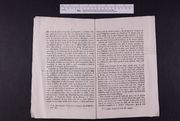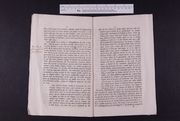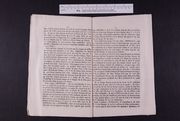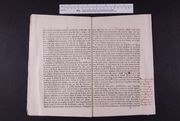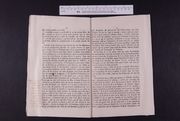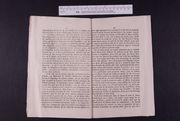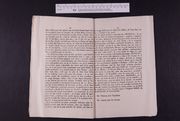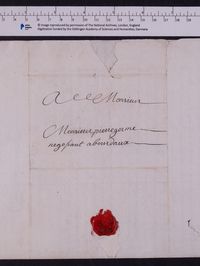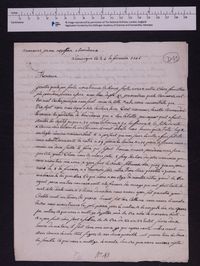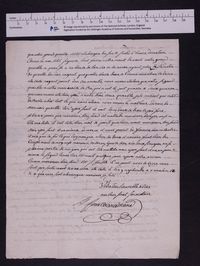L'Amphitrion
L'Amphitrion
The ship ‘Amphitrion’, of which Jean Baptiste Laborde was the master, was owned by two merchants from Bordeaux and used to sail from there to Martinique and back. When it was captured returning to Bordeaux in June 1744, it had documents from earlier journeys on this route on board as well as documents from or holding information on different ships sailing the same route.
HCA 32/94/3 consists of a variety of documents differing in form and content, while giving interesting insights into seafaring and communication between colonies, such as Martinique, and mainland France.
Discover HCA 32/94/3: L'Amphitrion in TNA Discovery
Browse the documents in the Prize Papers Portal
There are several documents concerning a damage caused by Capt. Laborde or his ship to another ship at the port of St Pierre, Martinique, illustrating how such damages were compensated: The Lieutenant Général of the French Admiralty in Martinique passed a sentence condemning Capt. Labored to pay for the damages. However, instead of the amount he had to pay being decided by the Lieutenant Général, it was decided by two other shipmasters who, as experts, assessed the damage.
Indenture (B45): Three men signed an indenture with Capt. Laborde agreeing to serve an (yet) unknown master for three years in return for their passage to Martinique on board the ‘Amphitrion’. During that time they were not allowed to change their employer or place of residence without permission and the captain was to sell this indenture to an employer at Martinique (HCA 32/94/3/B45). An official receipt confirms their arrival in St Pierre, Martinique (HCA 32/94/3/B47).
In a letter to the secretary of the Comte de Maurepas, a royal notary at Martinique requested permission to leave the island in order to move to New Orleans, Mississippi. He praised the addressee as the ‘tutelary deity’ (“le genie Tutelaire”) of the colonies and asked him to present a petition to the Comte, who was minister of the royal household and navy and therefore administered the navy, colonies and seaborne trade. The letter’s author complained about the infertility of Martinique’s soil consisting of tuff (a rock composed of volcanic ash) and the strain it put on the farmers (“Je ne Suis pas le Seul oprimé par La Sterilité des terres; Il y en à un Nombre d’autres qui Gemissonts sous Lepoid dela même Infortune …”).
This letter was accompanied by the actual petition to the Comte revealing the authors true source of discontent (HCA 32/94/3/D60): He was not allowed to take his slaves on board a ship to New Orleans, but was told to sell them and buy new ones after his arrival. In his petition he argues that it should be possible for him, as their owner, to take his slaves from one province of the kingdom to another. What is striking is the stark contrast between his insistence on owning humans and his lament about the perceived restrictions of his own freedom: The author wrote that - while providence granted him slaves (“quelques N*****, que La Providence luy à donné”) - denying him to transport his slaves was depriving him of his liberty as a loyal subject and good citizen (“Comme un fidel Sujet, Comme un Bon Citoyen, qui à Remply tous Ses devoir dans La societé”). He then continued by arguing that freedom was the most precious gift that nature granted him (“de toute saliberté; qui En Effet Est leplus prétieux don quil ayt Recu dela Nature”), before underlining this statement by emphasizing that after all they were no longer living in the dark era of serfdom (“Joint à cela que Nous ne Sommes plus dans ces Siècles Reculés, ou les serfs Corporels et Gens de Mainmorte faisoent partie duCorps dela Nation.”) The author finally claims that the suffered injustice caused him tears (“Conbien Ce Refus luy à cause de Larmes.”).
In conclusion, his notion of freedom as a subject and citizen seems to include the right to own slaves.
(all quotes from p.2, HCA 32/94/3/60)
Math book (C06): Capt. Laborde owned a mathematics textbook written and dedicated to him by a ‘sworn and experienced geometer and arithmetician’ who taught at Bordeaux. (“Geomètre & arithmeticien Juré, verzeé, Experimenté en cet art; & Professeur dans La Susditte ville”) (HCA 32/94/3/C6). In the preface, the author stresses the beauty of mathematics and its importance for communication among the peoples: “… cette Science est Laplus vaste, Laplus belle & Laplus utile aux hommes, attendu que son secours et generalement necessaire pour La par Faitte intelligence et correspondence des puples les uns avec Les autres.”
The book consists of word problems like ‘The king has four armed corps, one in Flanders comprising 67975 soldiers, one in Piedmont comprising 42355 soldiers in Alsace … How many men does the army have in total?’ It then demonstrates how to write down the numbers in rows and columns in order to add them up. On top of that, the book contains examples on how to calculate credits and debits in an account or to convert currencies.

by Daniel Fleisch
Contact: daniel.fleisch@uni-oldenburg.de
Transcription and translation of HCA 32/94/3/D34
Download the PDF file
Credit: L’Amphitrion. TNA, HCA 32/94/3. Photo: Joanne Muhammad, Prize Papers Project. © Images reproduced by permission of The National Archives, London, England.


